
From 5 to 10% of children suffer from a seemingly insignificant disease, but which can completely turn their lives upside down. Atopic dermatitis often means not being able to sleep because of itchy skin, not being able to sleep because of tingling, not being able to concentrate or study the next day because of lack of sleep. In addition, there is a stigma. Inevitably, questions begin to arise: are you contagious? Is it accepted? Hey, what’s on your face?
“People express their opinions without even realizing it! Like those women at BAC, I will never forget the way those women looked at me. I was taking the Romanian language test and the invigilators came up to me: Aoleu, what do you have?? I had a little inflammation that day, but who knows what. And they started giving me advice. They told me to use the Nivea cream because it worked so well on their face and to try it too.” – experience of a young woman with atopic dermatitis.
“These are young children, teenagers or young people whose lives have changed”
Atopic dermatitis is not only the most common chronic inflammatory skin disease in the world (estimated to affect more than 200 million people worldwide), but it is also a disease that risks isolating patients and preventing them from having friends or having a normal life.
A child with atopic dermatitis is a child who does not sleep at night, does not concentrate the next day, does not study well, and the rash on the face or body is a stigma. The questions begin: are you contagious? Is it accepted? Hey, what’s on your face? – explains Iryna Antonescu, pediatrician and mother of Ada, a young woman with a diagnosis of atopic dermatitis, currently a student at the Faculty of Medicine.
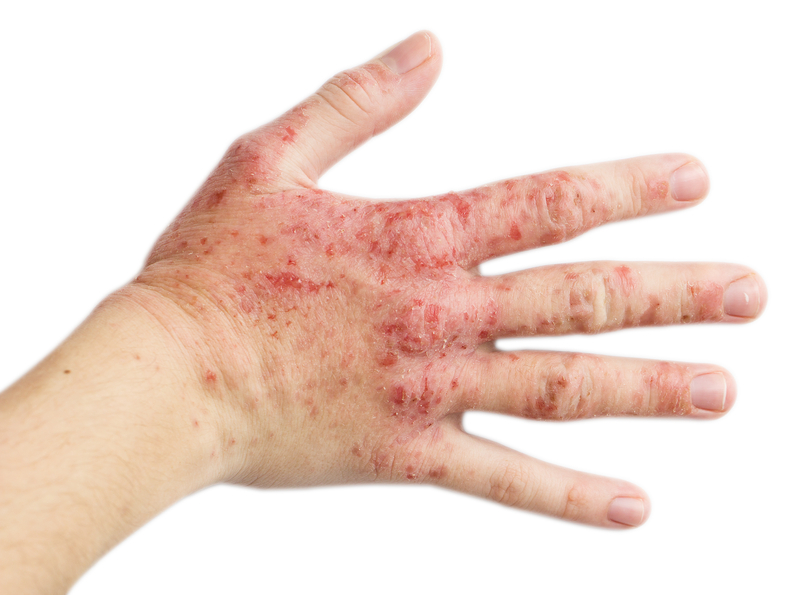
Atopic dermatitis is also an emotionally crippling disease: many young people also need psychological support, not just creams that treat the physical condition.
“Think of them as toddlers, but they’re also teenage kids, and they’re also young adults whose lives are changing. Because when you communicate with another person, and they do not understand what is happening to you, you feel like a fool,” says Iryna Antonescu.
“The moment you can’t sleep, can’t sleep from itching, can’t sleep from tingling, your whole life turns upside down”
“I’m glad we found a way to share our story. On the other hand, we must realize that it is a disease that can be lived with, that it is a disease that can be treated and in which we can find solace. Until now, we did not understand what the quality of life of a patient with a dermatological disease means. I admit, 10 years ago it seemed like a fad. I thought: look at dermatologists, at the quality of life of a patient with a dermatological disease. What’s the trouble? This is a big deal. Because the moment you can’t sleep, can’t sleep from the itching, can’t sleep from the shots, your whole life is turned upside down. You can’t work well the next day,” says Iryna Antonescu, pediatrician and mother of a young woman with atopic dermatitis, also a medical student.
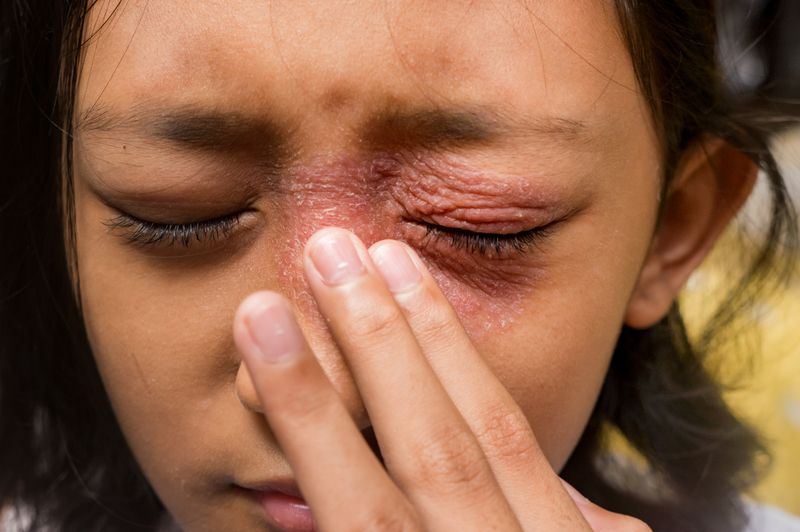
“Think of them as toddlers, but they’re also teenage kids, and they’re also young adults whose lives are changing. Because at the moment when you communicate with another person, and he does not understand what is happening to you, you feel like a fool,” the doctor adds.
Iryna Antonescu says that she and her daughter Ada were open, and her child came to terms with the fact that she suffers from this disease: “She agreed to say: ‘Yes, I have local dermatitis, it does not go away.’ At first she was very worried about inquisitive questions, then she was indifferent.”
However, Ada, the daughter of doctor Irina Antonescu, is constantly troubled by the fact that she cannot rest, that she wakes up with itching, and when she studies, when she studies at school, she has to scratch herself. all the while: “Even one of her very good friends was on a mission to keep her from getting scratched. He had never said that before. Once I gave him an envelope. The other little girl’s name is Oleksandra, and I told her: when you see her raise her hand to scratch, go with the envelope. And I laughed because it’s an unconscious gesture — the moment he eats you and you don’t scratch. And the more you scratch, the more it itches, and you get into a vicious circle – the itch adds to it, another itch is added, you feel the need to scratch, and the skin looks like it does, at some point it thickens, it’s hard, burning. I didn’t even realize that the problem was the pity. Thickened skin is skin that stings,” says Iryna Antonescu.
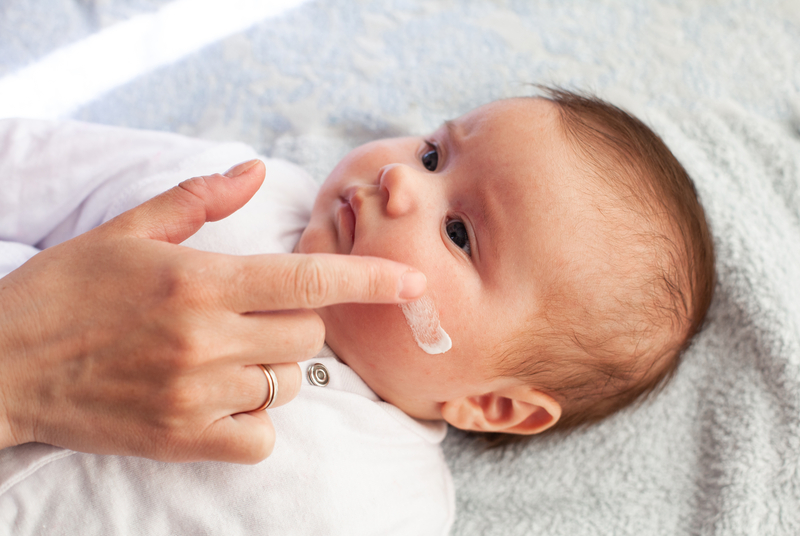
Things a lot of people don’t know or understand about atopic dermatitis: “You can’t wear anything, you can’t wash in anything, you can’t go to the pools you want to go to because the excess chlorine in the pool is not good for your skin. You have to be very careful, but if you are careful and follow certain steps, you can have a normal or almost normal life.”
There is a treatment for atopic dermatitis, says Iryna Antonescu, but it must be recommended and monitored by doctors. Many patients fall into the trap of self-medication: “I’m a mother, I’m also a doctor and all kinds of patients who take their own initiative, use all kinds of creams and conduct all kinds of experiments on their skin. and suffer.”
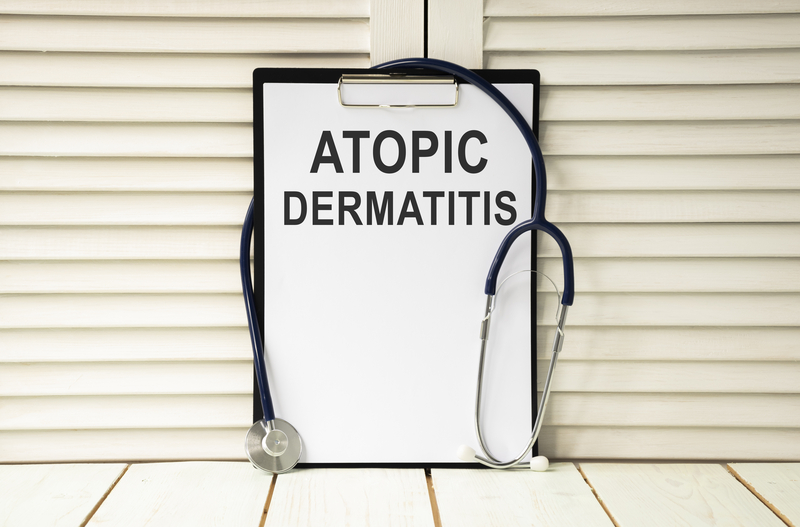
DA, a performance inspired by the experience of patients with atopic dermatitis, in secondary schools in Bucharest
In the case of atopic dermatitis, education and information are very important so that those who come into contact with a person with atopic dermatitis do not offend them or make them feel bad.
That is why Iryna Antonescu as a doctor and her daughter Ada, a patient with atopic dermatitis, participated in the project of the Coalition of Organizations of Patients with Chronic Diseases, the largest association representing chronic patients in Romania, which organizes a performance inspired by the experience of patients with atopic dermatitis in high schools Bucharest.
DA, a performance inspired by the stories of patients with atopic dermatitis, is an attempt to popularize the experiences that children, teenagers and young adults go through with atopic dermatitis.
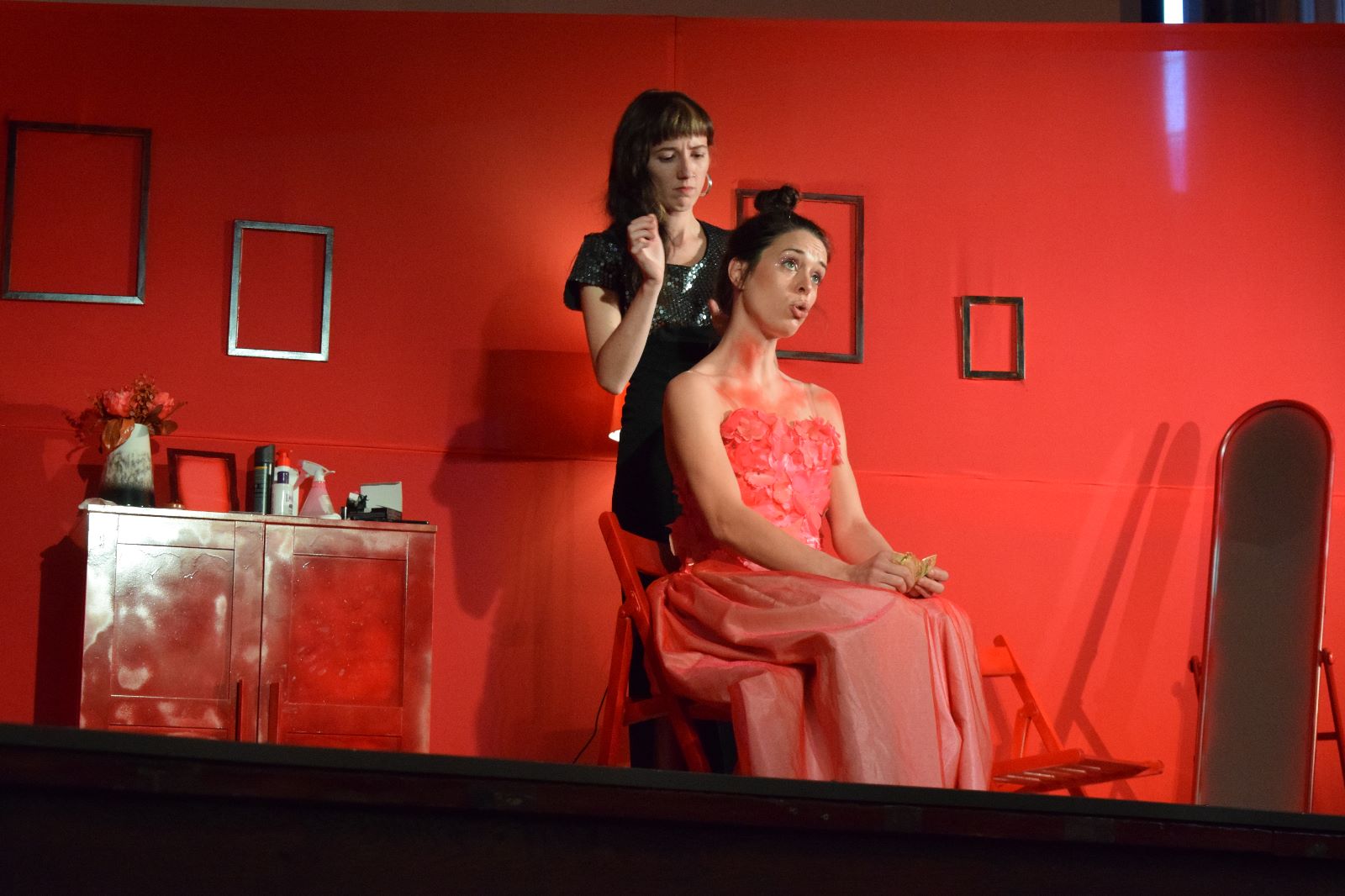
To many of us, it seems like a minor disease that turns red on the skin and can disappear as quickly as it appeared. This is not true at all. Patients have a lot of problems because of the condition, often they can’t sleep at night, they have restrictions on the fabrics they can wear, they are afraid that their colleagues will find out and much more.
A, B and E are three young women who told their stories. A is a medical student and is no longer afraid or ashamed. Together with her mother, also a doctor, she overcame all these stages.
B is a young and active mother because she has the right treatment. And she has the support of the people around her, and she’s been in love for months. But it was not always like that. And you will find her experiences in the play.
E is a young woman who does not want to know about her illness. Only the family knows. He says there may come a time when he can speak openly, but it hasn’t come yet.
Their stories, embodied in the play, will help other children and teenagers better understand what their colleagues with atopic dermatitis are going through, and support them.
“People express their opinions without even realizing it! Like those women at BAC, I will never forget the way those women looked at me. I was taking the Romanian language test and the invigilators came up to me: Aoleu, what do you have?? I had a little inflammation that day, but who knows what. And they started giving me advice. They told me to use the Nivea cream because it worked so well on their face and to try it too.”
“Dermatitis is a part of me. It’s one of my identities that I’ve been able to embrace and live with!”
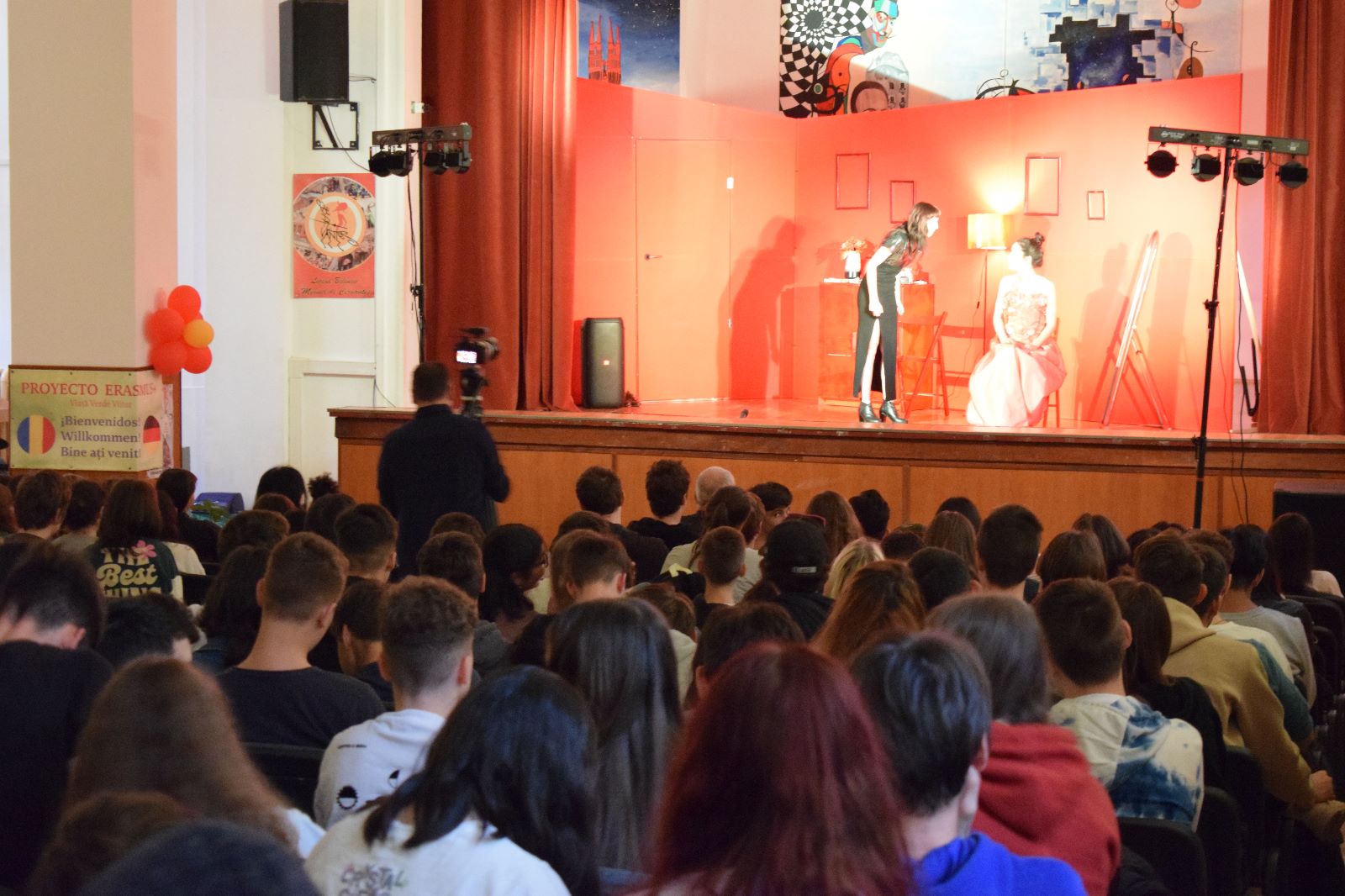
The theater show will be shown in the high schools of Bucharest Miguel Cervantes, Jean Monet and Gheorghe Lazar. The song has been recorded and will be posted on Youtube to reach as many people as possible.
The interview, script and production were produced by Active Works, professional actors who use acting exercises and techniques to help people, groups and organizations learn through experience.
The play is part of the Coalition of Chronic Disease Patient Organizations (COPAC) project, implemented after winning an international grant, becoming one of the 5 winning projects from around the world in the global competition “Agents of Chance”, founded by Sanofi and Regeneron.
Photo: Dreamstime.com, COPAC (Coalition of Chronic Patient Organizations).
Ashley Bailey is a talented author and journalist known for her writing on trending topics. Currently working at 247 news reel, she brings readers fresh perspectives on current issues. With her well-researched and thought-provoking articles, she captures the zeitgeist and stays ahead of the latest trends. Ashley’s writing is a must-read for anyone interested in staying up-to-date with the latest developments.